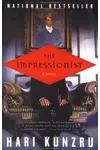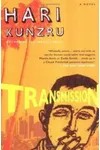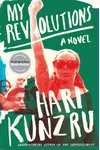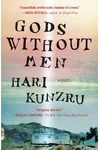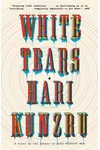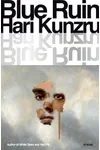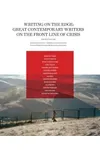Picture a British storyteller weaving tales of identity, technology, and cultural upheaval—meet Hari Kunzru! Born in 1969 to a Kashmiri Pandit father and English mother, Kunzru has captivated readers with novels that blend sharp wit, historical depth, and modern anxieties. His debut, The Impressionist, launched him into literary stardom, and his works, translated into 20 languages, continue to spark global conversations.
With a knack for exploring the fluidity of self in a chaotic world, Kunzru’s stories resonate with anyone who’s ever felt caught between cultures or eras. Ready to dive into his vibrant, thought-provoking universe? Let’s explore the man and his masterpieces!
The Making of Hari Kunzru
Hari Kunzru grew up in Essex, England, navigating the complexities of his mixed heritage. Educated at Bancroft’s School and later at Oxford’s Wadham College, where he studied English, he developed a keen interest in identity and post-colonial themes. His MA in Philosophy and Literature from the University of Warwick deepened his fascination with technology’s societal impact. Before novels, Kunzru honed his voice as a journalist, writing for The Guardian, The Daily Telegraph, and Wired UK, where he explored culture and tech. This diverse background shaped his unique lens, blending historical insight with contemporary critique.
Hari Kunzru’s Unforgettable Stories
Kunzru’s novels are a masterclass in storytelling, weaving intricate narratives that challenge perceptions of race, identity, and power. His 2002 debut, The Impressionist, follows Pran Nath, a chameleon-like protagonist navigating colonial India and beyond, exposing the absurdity of racial classifications. The novel’s lush prose and biting humor earned it the Betty Trask Prize and Somerset Maugham Award. Transmission (2004) dives into the tech world, where an Indian programmer’s virus disrupts global systems, reflecting Kunzru’s fascination with digital chaos and globalization.
Gods Without Men (2011) is a sprawling, time-hopping epic set in the American desert, intertwining stories of loss, faith, and UFO cults. Critics hailed it as a “translit novel” for collapsing time and space. More recently, White Tears (2017) and Red Pill (2020) tackle race, music, and political paranoia, showcasing Kunzru’s ability to blend genres—think literary fiction meets psychological thriller. His style is propulsive, blending vivid imagery with sharp social commentary, making each book a journey through the human condition.
Kunzru’s works don’t shy away from tough questions. Whether exploring colonial legacies or the surveillance state, he invites readers to question the systems shaping our lives. His storytelling feels both timeless and urgently modern, appealing to fans of literary fiction and speculative narratives alike.
Why Hari Kunzru Matters
Hari Kunzru’s impact lies in his fearless exploration of identity and power in a globalized world. His novels challenge readers to confront uncomfortable truths about race, technology, and history, earning him accolades like being named one of Granta’s Best Young British Novelists in 2003. As Deputy President of English PEN, he advocates for free expression, notably risking arrest in 2012 by reading from Salman Rushdie’s banned The Satanic Verses at the Jaipur Literature Festival. His work inspires writers and readers to embrace fluidity and resist rigid narratives, cementing his legacy as a voice for our times.
- Born: 1969, London, England
- Key Works: The Impressionist, Transmission, Gods Without Men, White Tears, Red Pill
- Awards: Betty Trask Prize, Somerset Maugham Award, Granta Best Young British Novelist (2003)
- Fun Fact: He’s fascinated by UFOs and once imagined a close encounter!
Snag The Impressionist or White Tears and dive into Hari Kunzru’s electrifying world of literary adventure!
